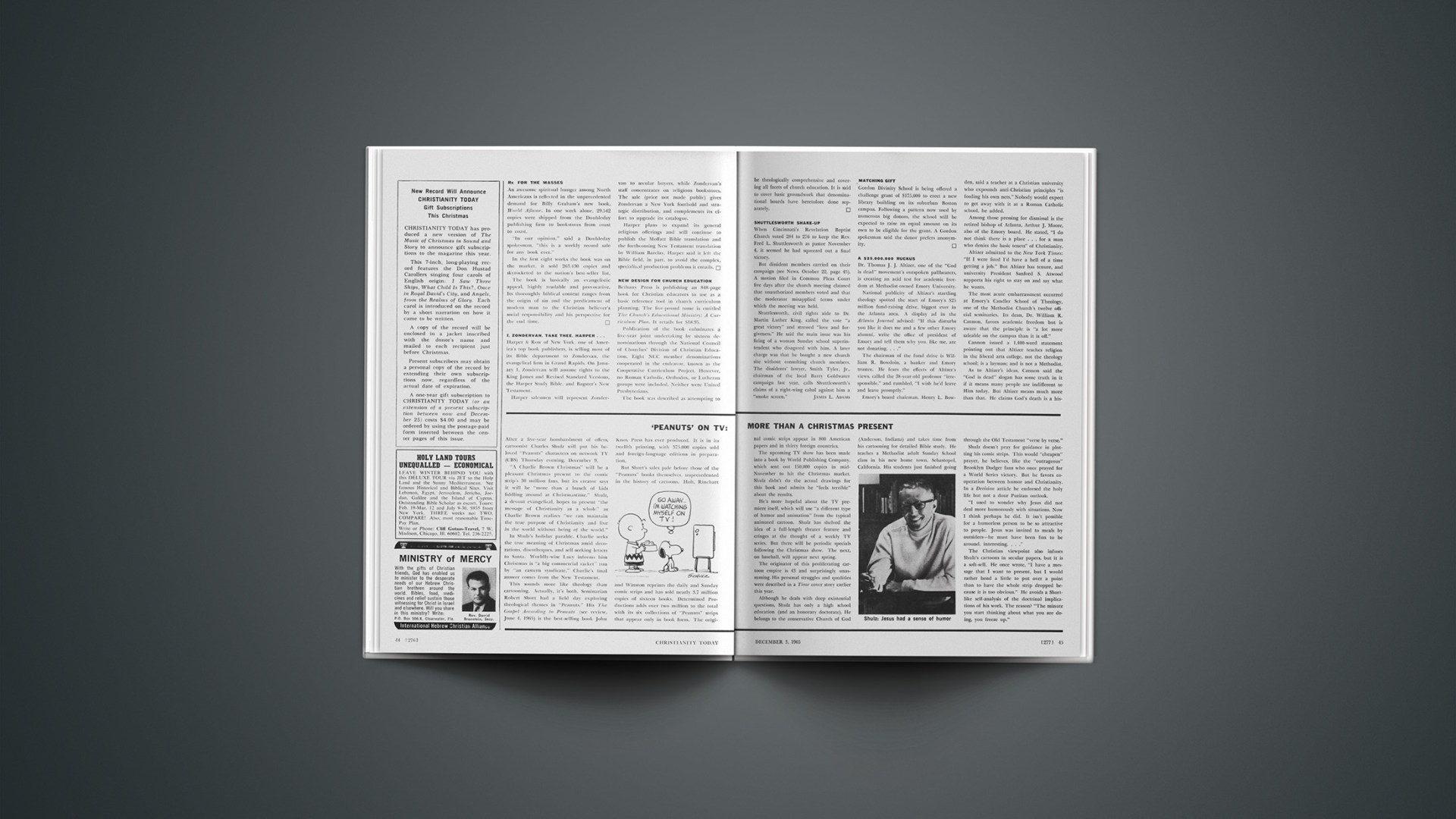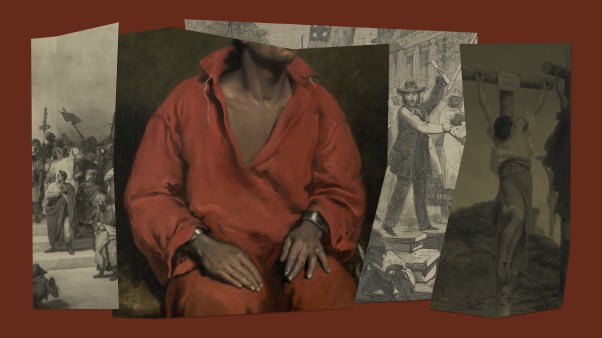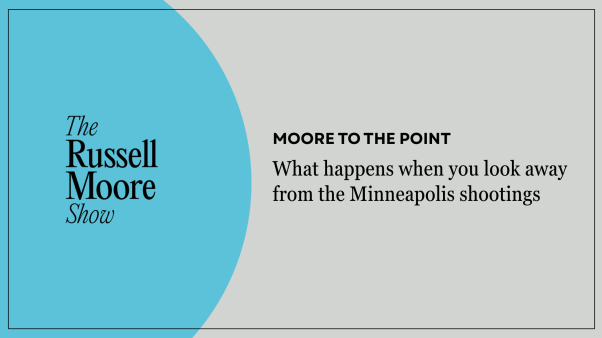After a five-year bombardment of offers, cartoonist Charles Shulz will put his beloved “Peanuts” characters on network TV (CBS) Thursday evening, December 9.
“A Charlie Brown Christmas” will be a pleasant Christmas present to the comic strip’s 30 million fans, but its creator says it will be “more than a bunch of kids fiddling around at Christmastime.” Shulz, a devout evangelical, hopes to present “the message of Christianity as a whole” as Charlie Brown realizes “we can maintain the true purpose of Christianity and live in the world without being of the world.”
In Shulz’s holiday parable, Charlie seeks the true meaning of Christmas amid decorations, discotheques, and self-seeking letters to Santa. Worldly-wise Lucy informs him Christmas is “a big commercial racket” run by “an eastern syndicate.” Charlie’s final answer comes from the New Testament.
This sounds more like theology than cartooning. Actually, it’s both. Seminarian Robert Short had a field day exploring theological themes in “Peanuts.” His The Gospel According to Peanuts (see review, June 4, 1965) is the best-selling book John Knox Press has ever produced. It is in its twelfth printing, with 375,000 copies sold and foreign-language editions in preparation.
But Short’s sales pale before those of the “Peanuts” books themselves, unprecedented in the history of cartoons. Holt, Rinehart and Winston reprints the daily and Sunday comic strips and has sold nearly 3.7 million copies of sixteen books. Determined Productions adds over two million to the total with its six collections of “Peanuts” strips that appear only in book form. The original comic strips appear in 800 American papers and in thirty foreign countries.
The upcoming TV show has been made into a book by World Publishing Company, which sent out 150,000 copies in mid-November to hit the Christmas market. Shulz didn’t do the actual drawings for this book and admits he “feels terrible” about the results.
He’s more hopeful about the TV premiere itself, which will use “a different type of humor and animation” from the typical animated cartoon. Shulz has shelved the idea of a full-length theater feature and cringes at the thought of a weekly TV series. But there will be periodic specials following the Christmas show. The next, on baseball, will appear next spring.
The originator of this proliferating cartoon empire is 43 and surprisingly unassuming. His personal struggles and qualities were described in a Time cover story earlier this year.
Although he deals with deep existential questions, Shulz has only a high school education (and an honorary doctorate). He belongs to the conservative Church of God (Anderson, Indiana) and takes time from his cartooning for detailed Bible study. He teaches a Methodist adult Sunday School class in his new home town. Sebastopol, California. His students just finished going through the Old Testament “verse by verse.”
Shulz doesn’t pray for guidance in plotting his comic strips. This would “cheapen” prayer, he believes, like the “outrageous” Brooklyn Dodger fans who once prayed for a World Series victory. But he favors cooperation between humor and Christianity. In a Decision article he endorsed the holy life but not a dour Puritan outlook.
“I used to wonder why Jesus did not deal more humorously with situations. Now I think perhaps he did. It isn’t possible for a humorless person to be so attractive to people. Jesus was invited to meals by outsiders—he must have been fun to be around, interesting.…”
The Christian viewpoint also infuses Shulz’s cartoons in secular papers, but it is a soft-sell. He once wrote, “I have a message that I want to present, but I would rather bend a little to put over a point than to have the whole strip dropped because it is too obvious.” He avoids a Short-like self-analysis of the doctrinal implications of his work. The reason? “The minute you start thinking about what you are doing, you freeze up.”
The book was described as attempting to be theologically comprehensive and covering all facets of church education. It is said to cover basic groundwork that denominational boards have heretofore done separately.










